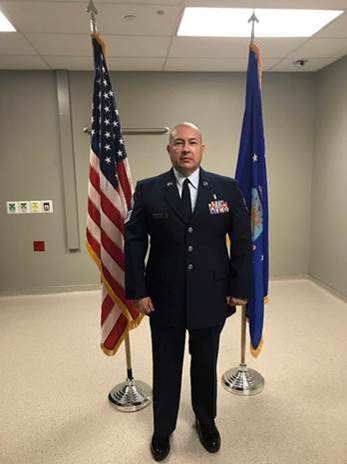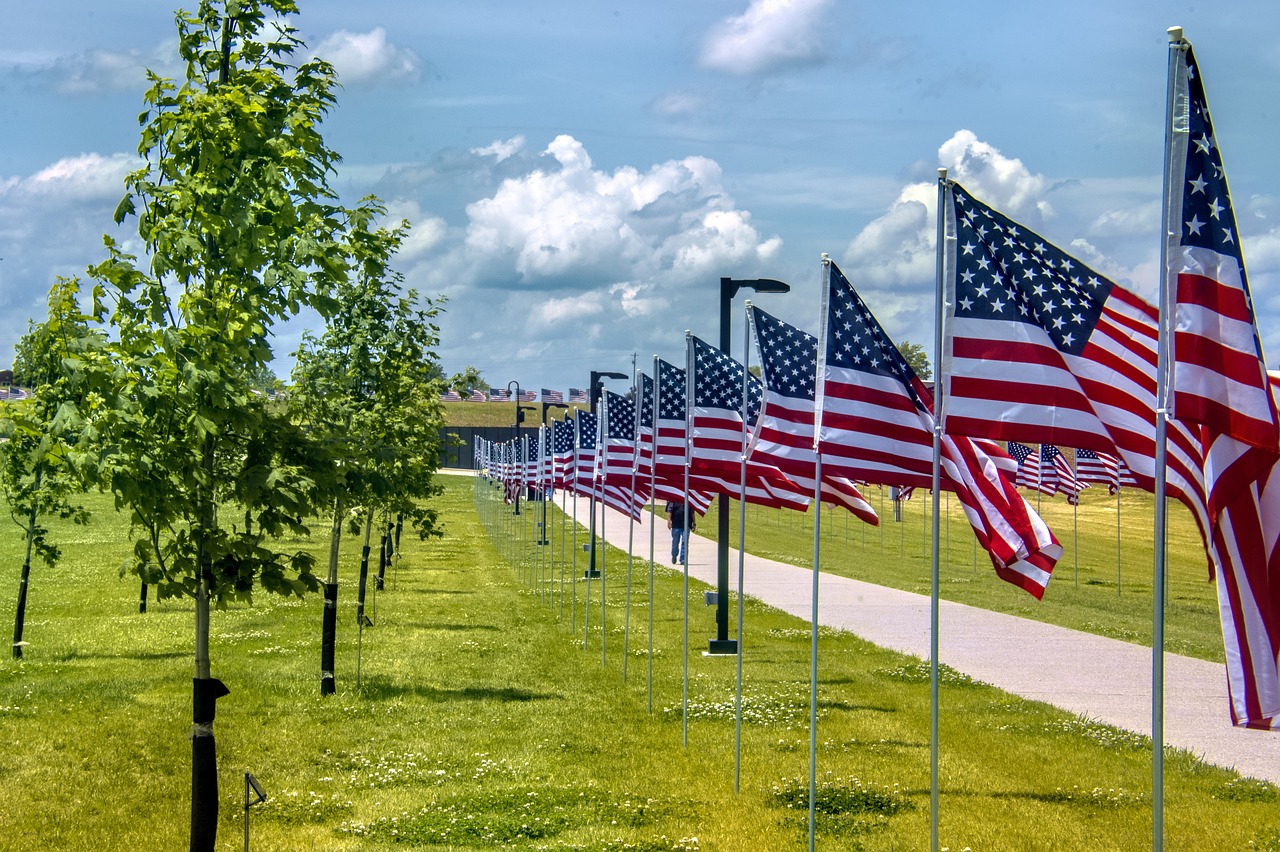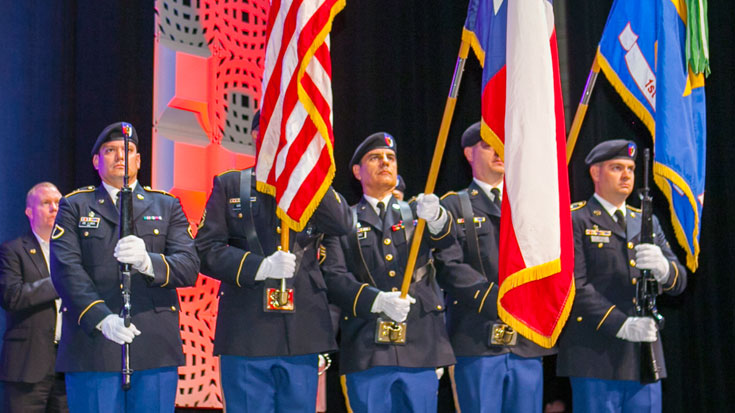
Chief Master Sergeant (Ret.) Dario Rodriquez Jr, MSc, RRT, RPFT, FAARC, adjunct associate professor of surgery and director of clinical research for trauma and critical care in the department of surgery at the University of Cincinnati, lost his long and courageous battle with cancer on Sunday, Mar. 13.

A native of Texas, born in Ballinger and raised near Dallas, he was a true son of the Lone Star State. His love of the Dallas Cowboys and the University of Texas Longhorns was only eclipsed by his love for his family and his country.
CMSgt Rodriquez began his career in respiratory care when he enlisted in the U.S. Air Force (USAF) and trained as a respiratory therapist. But he is probably best remembered by many for his role as one of the first members of the USAF’s elite Critical Care Air Transport Teams (CCATTs).
“He liked to say he flew CCATT before it had a name or a reputation,” said Richard Branson, MS, RRT, FAARC, who worked with CMSgt Rodriquez for many years as part of military training programs and research efforts at the University of Cincinnati.
“He was often deployed early in a conflict when the need was great, and the comforts were minimal,” Branson said.
Far-reaching career
But CMSgt Rodriquez did more than just fly with the CCATT as a working RT. “Dario was instrumental in the creation, training, and maturation of CCATT,” Branson said.
After serving as division manager of medical services at Eglin Air Force Base, he was assigned to USAF’s Center for Sustainment of Trauma and Readiness Skills (CSTARS) as the group’s first respiratory therapist. There he served as superintendent for three years, greatly influencing the program and the requirements for certifying caregivers for flight readiness.
“Dario took the process of qualifying teams and individuals for flight as a sacred trust,” Branson said. “He not only required but demanded mastery of procedures and equipment by individuals and as a team.”
In addition to his role with CSTARS, he was the respiratory care program director for the USAF School of Health Sciences, consultant to the Air Force Surgeon General’s office, and the chief operations officer at Wright Patterson Medical Center.
Branson says CMSgt Rodriquez felt the weight of every wounded warrior in his hands and dedicated himself to giving them the best opportunity for a good outcome. This devotion was not lost on his superiors, who went above and beyond to ensure he received the recognition he deserved.
“When Dario made Chief Master Sergeant, a rank he believed wasn’t in his future when assigned to CSTARS, his friends and colleagues were filled with pride, mostly in knowing he was so well deserving of the honor,” Branson said. “It was not lost on some of us that a kid from rural Texas of Hispanic and Native American descent who spent summers working on a family farm or in a garage had been elevated to the highest level of enlisted leadership in the USAF. His promotion to Chief, against the odds, solidified his own belief in the promise of the United States for all peoples.”
Well-deserved honors
During his 30 years of service, CMSgt Rodriquez was awarded several citations, including the Meritorious Service Medal with two oak leaf clusters, Aerial Achievement Medal, Air Force Commendation Medal with two oak leaf clusters, Air Force Outstanding Unit Award with two oak leaf clusters, National Defense Service Medal with Bronze Star, Afghanistan Campaign Medal with Bronze Star, and Global War on Terrorism Service Medal.
In addition to deploying to Iraq and Afghanistan, he was also assigned to support the evacuations following Hurricane Katrina.
Rodriquez retired as Chief Master Sergeant in 2013 and joined the USAF Research Laboratory in a civilian capacity as senior research health science officer for the Airman Biosciences Division, 711th Human Performance Wing, and the lead for en route care research.
“Chief Rodriquez served a vital role within the department of surgery, leading efforts related to en route care and ventilator research,” Branson said. ”In these positions, he performed extensive medical device research, development, and evaluation. He also participated in planning for the future of en route care, including unmanned vehicle extraction with NATO, the Israeli Defense Forces, and NASA.”
Branson says CMSgt Rodriquez was much revered for his expertise, especially in ventilator use during en route care. He served as a formal consultant for several organizations, including the USAF, Army, Marine Corps, Defense Medical Standardization Board, CDC, and the FDA.
“He led an initiative to train respiratory therapists and physicians in using ventilators acquired for the Strategic National Stockpile, a cooperative endeavor with AARC and HHS,” noted Branson. “An ardent advocate for improving the care of the wounded warfighter, he was the principal investigator or co-principal investigator of 15 major research grants and authored more than 50 publications.”
CMSgt Rodriquez was elected a Fellow of the American Association for Respiratory Care in 2012.
Fighting to the finish
Rich Branson remembers his long-time colleague and friend as someone who was always where he needed to be when he needed to be there.
“Dario insisted on punctuality and considered 10 minutes early as late,” he said. “He was at work by 0600, even when he drove 90 minutes to work every morning.”
His spirit of camaraderie with all was legendary as well.
“He was as comfortable laughing with the housekeeper in the morning as he was speaking to clinicians at the bedside, officers in a briefing, and Congressmen in a program review,” Branson said. “He was driven by his principles and made every individual feel valued, and as a result, they performed at their best.”
CMSgt Rodriquez brought all of his military training and experience to his fight with cancer.
“To say that Dario battled cancer is like saying there was a skirmish at Thermopylae,” Branson said. “Cancer took his daughter Amanda at 17. Cancer took his right leg below the knee five years ago. Cancer took his life on Mar. 13. But The Emperor of All Maladies could not defeat his integrity, his sense of purpose, or prevent him from continuing to care for others. His passing leaves a void among his colleagues and friends. Indeed, in his absence, the world is not as safe, is not as true, and yearns for the qualities he exemplified.”
CMSgt Rodriquez is survived by his wife Christina, son Steven, and three grandchildren, who he always referred to as “My Boys and Brynlee.”
A memorial service for CMSgt Dario Rodriquez is scheduled for Tuesday, Apr. 12, from 12-1 p.m. at the Greenwood Funeral Home in Fort Worth, TX. The address is 3100 White Settlement Road, Fort Worth, TX 76107. Immediately following the service, Chief Rodriquez will be interred with full military honors at Dallas-Fort Worth National Cemetery.
Email newsroom@aarc.org with questions or comments, we’d love to hear from you.















